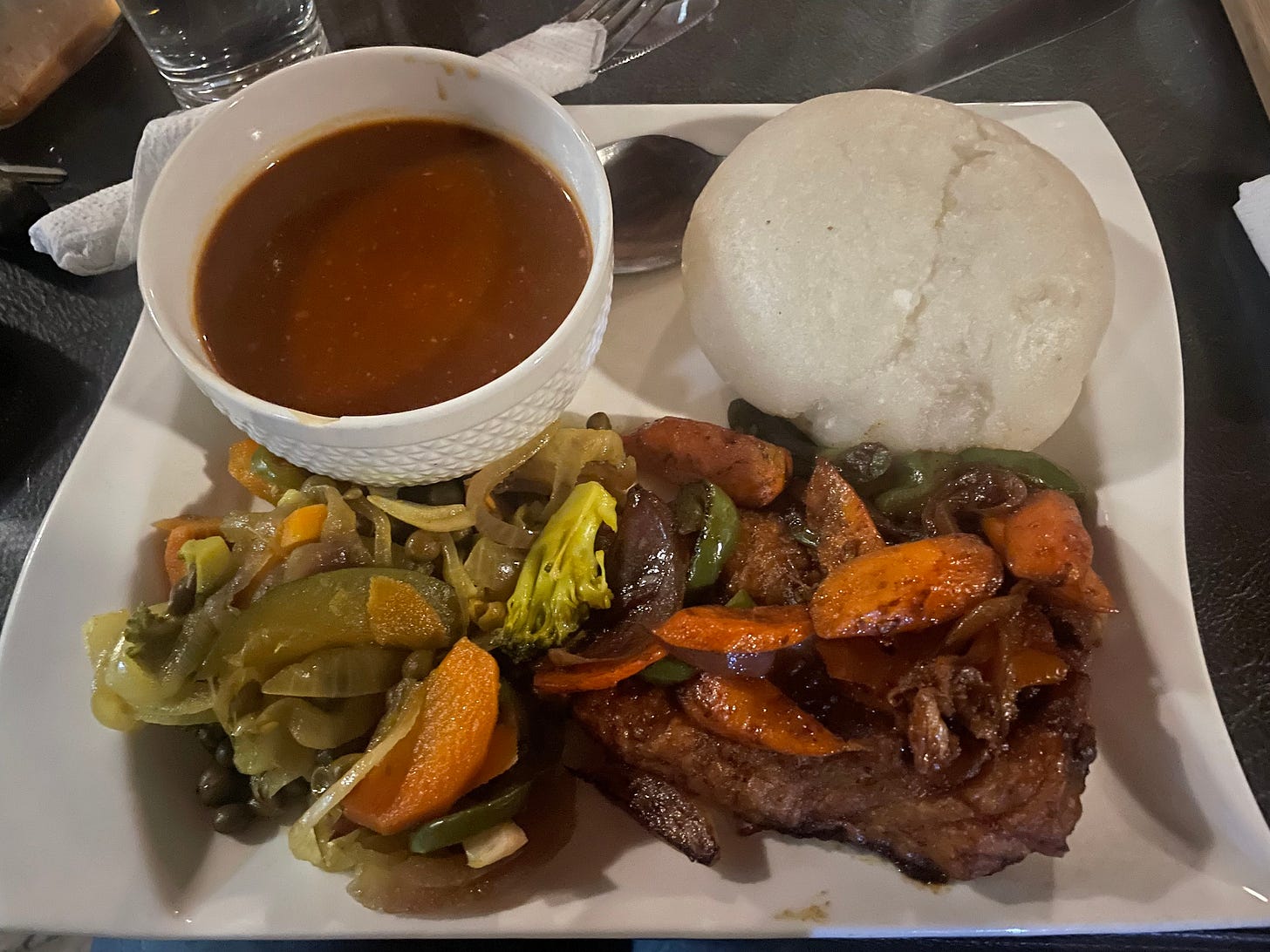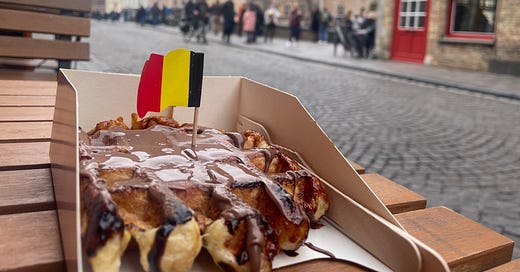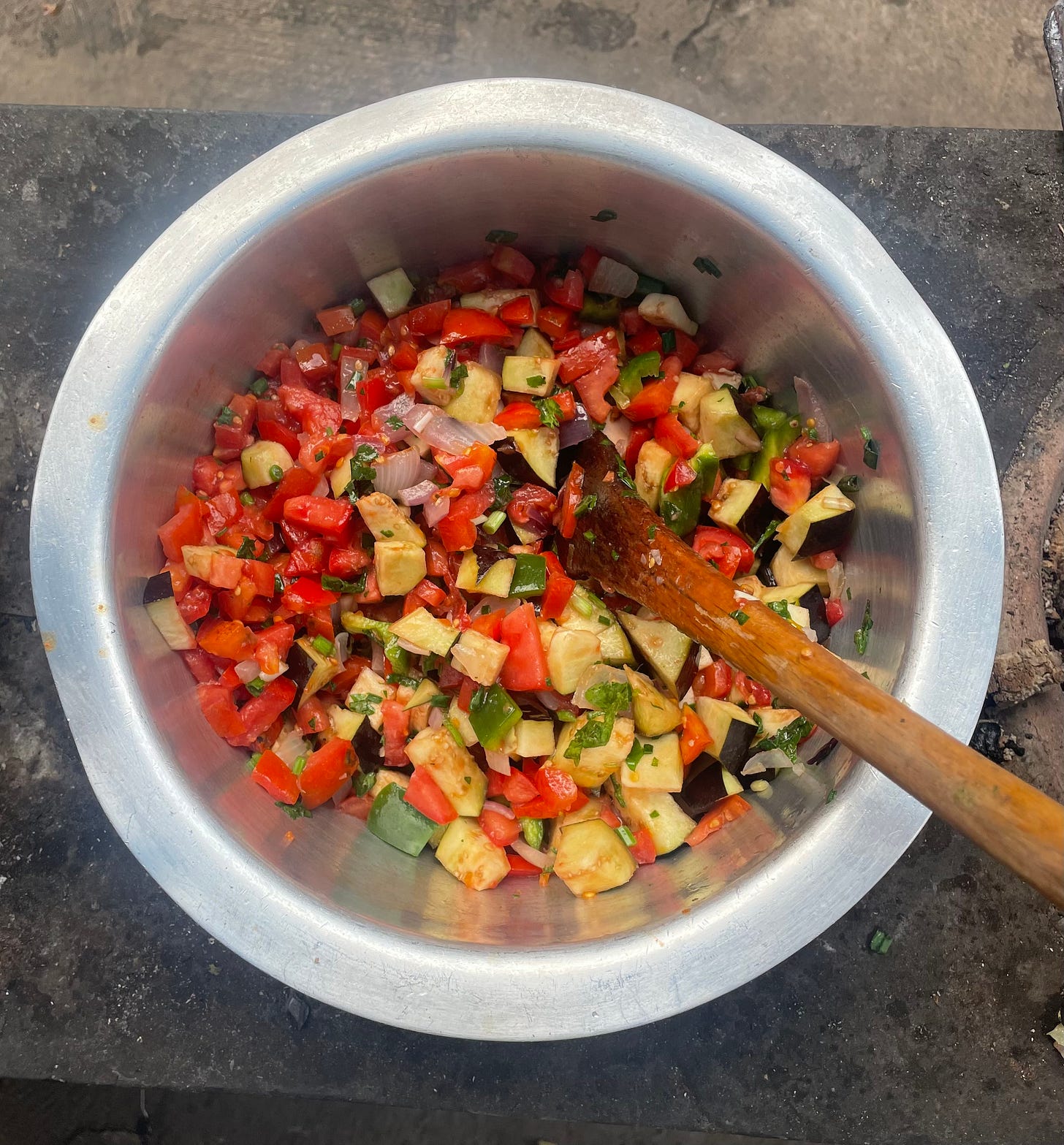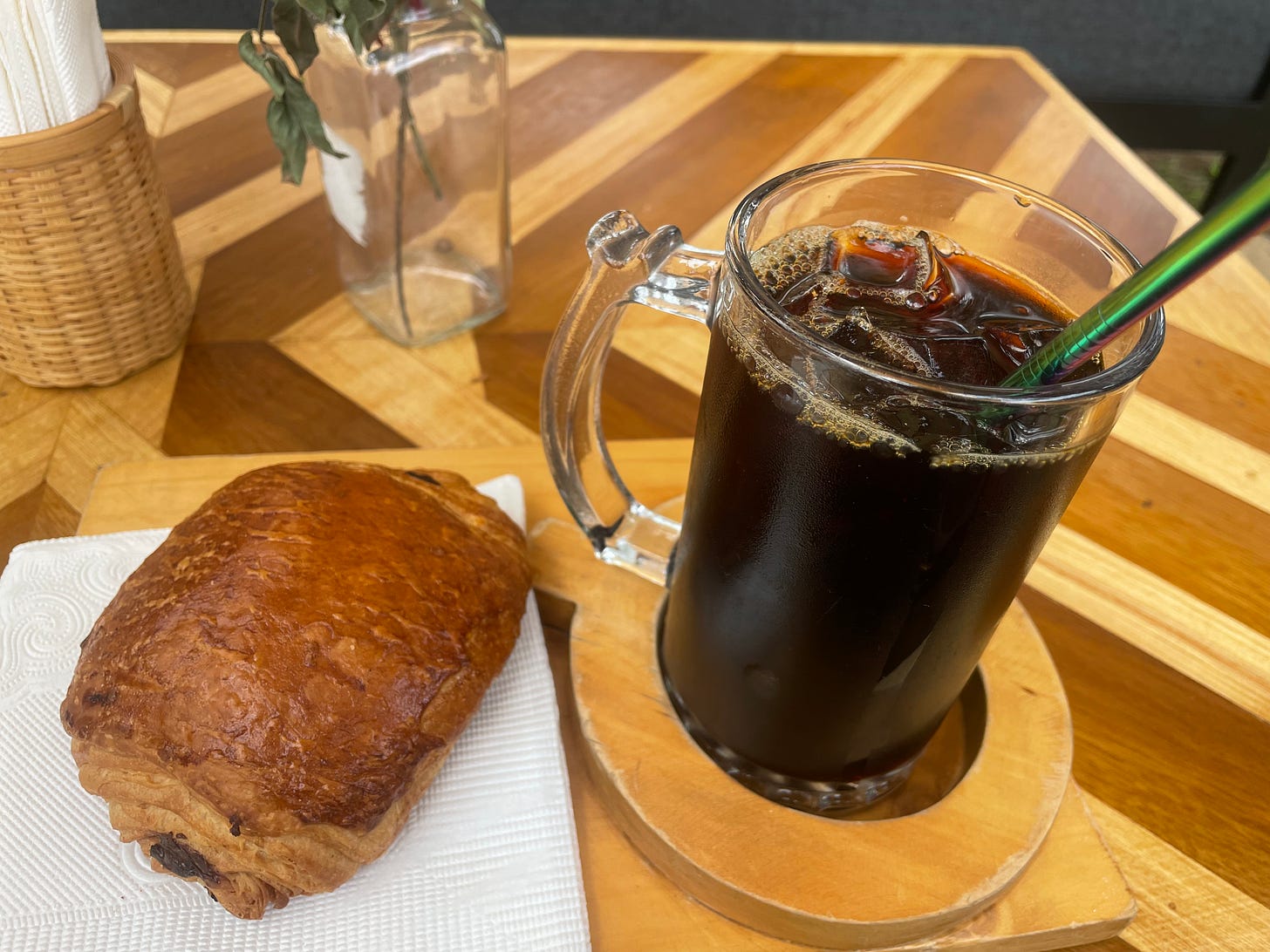Around the World in 80 Meals
My past month has been dominated by travel and exploration – from Rwandan towns at the foot of volcanoes to Belgian countryside, then all the way (back) across the Atlantic to Seattle and Chicago before resettling in Kigali. At a superficial level, each area was and is wildly unique. When I’ve attempted to draw connections and make comparisons in conversations, I have inevitably fallen short and risked broad caricatures of the place.
Yes, Brussels and Chicago both possess a similar, if not charming, grayness, but that grayness assumes different tones depending on whether its cast over a royal palace or Lake Michigan. Sure, the understories of Mount Bisoke and Olympic National Park look remarkably similar, populated by dozens of fern species, but the significance of that flora shifts within the larger ecosystem – a sword fern next to a banana slug has a different gravitas than one next to a mountain buffalo.
There are inextricable qualities that evade description – or, at least, my ability to articulate those descriptions. But, as I’ve repeatedly discovered, a local’s pride in food emerges irrespective of geographic coordinates. In my experience, people want to share culture and the quickest, easiest, most comprehensive exchange comes through food.
Throughout fleeting encounters and continual motion, food has often served to cement otherwise fragile connections. In a back-alley of an electronics re-sale shop, I shared a feast of Indian street food with German medical students and a Swiss scholar, exchanging chapati and political opinions. A backyard barbeque featuring pork ribs, ubugali, and eggplant parmesan turns into a lengthy discussion among Rwandans, Italians, and Germans about (among other topics) the Green Bay Packers, international finance practices, and amusement parks. On Wednesday afternoon, I meet a man for coffee and croissants, and, by Saturday morning, we are discussing Springsteen’s discography atop a volcano near the Ugandan border.
Undoubtedly, though, my favorite food-aided experience has come in a cooking class hosted by Nyamirambo Women’s Center. Through happenstance, the class turned into my own personal private lesson. Standing in her outdoor kitchen, the cook Amanitha guided me through the preparation of a traditional Rwandan meal. We shared very little common language and generally instructions were to do “like this” in accordance to Amanitha’s demonstration. If my mimicry failed to reach the satisfactory level of “good,” then Amanitha took the knife from my hands to show me again.
Very rarely have I felt so inexpert in a kitchen. I struggled to peel the plantains and to negotiate the right balance of the pots over the charcoal stove. I didn’t know how the dodo stalks bent, nor the trick of oil in the palms to fight sticky residue. But, as I fumbled through new ingredients and recipes, I felt a renewed thrill and, even, a sense of wonder. In creating this meal alongside Amanitha – two strangers sharing little language or background – the actual cooking experience became more powerful. The meal took a new and elevated quality, even before I had tasted any of it.
For the record, the food far exceeded any expectations, especially the cabbage mix and dodo with peanut sauce.
Of course, to simply praise food as universal is to ignore the impervious histories of colonialism and neoliberalism that have shaped global food exchange, but that is a topic for a different time — and much lengthier essay. The subjects of food justice, accessibility, and significance are freighted with political meaning that lies at a center of knotty narratives about culture, violence, the negotiations of who and what belongs to a community, regimes, etc.
Lacking the time and space for that topic, I have been thinking, specifically, about the pervasive attitudes that surround food in American culture. This reflection was prompted by my tennis coach, Olivier, and his apparent dissatisfaction with the idea of meal preparation. “Meal prepping is such an industrial way to approach food,” he told me. “Eating does not need to be optimized or made more efficient. You are not a machine. Food is meant to be savored, not endured, but Americans – you’re always so concerned about your efficiency.”

American food systems are, undeniably, convenient and abundant by nature. At any moment, nearly every supermarket in the U.S. can boast of vibrant red tomatoes and perfectly-shaped pineapples, grown and harvested in some invisible far-off place. When the perks are so obvious, it’s a hard system to question. Efficiency saves time and thought, allowing us more time for friends, family, activities, etc. Right? But, as Olivier reminded me, any emphasis on efficiency creates a mindset that prizes productivity above all else.
We can re-think our approach to food, as individuals, to center it as the fundamental shared experience and, perhaps, expression of humanity. The cultivation of food connects the entire spectrum of life within the universe from unseen microbiomes in the soil to particulate matter in the atmosphere. In fact, it’s a bit of a miracle that enough things go right — weather patterns, soil fertility, proper tilling and irrigation, harvesting at the appropriate moment — that any food ends up on our plate. Maybe we should all try to recognize and even celebrate those dozens of tiny miracles a bit more. I know I’m trying to better preserve, for me, the axis of connections that tie together food and environment, individual and community in small and deliberate ways: peeling a banana slower, eating outside away from screens, meal prepping in less bulk.
Because, after all, we are what we eat.





